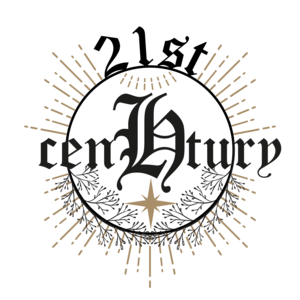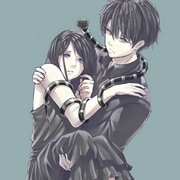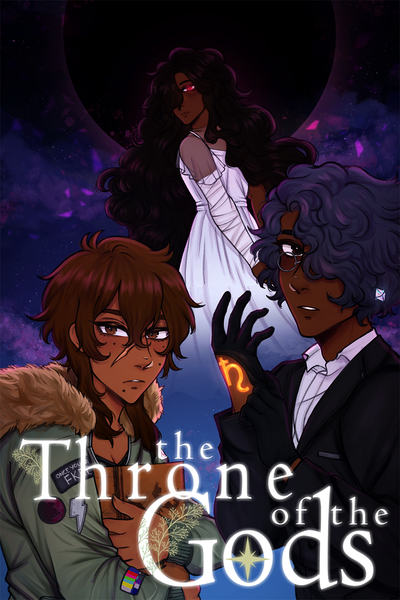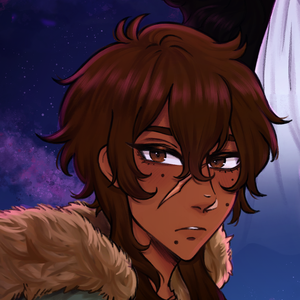sor·cer·y
the process of taking something ordinary and turning it into something extraordinary; the science of the Source
Every day, Samuel came to that harbor expecting news from the sea, and as he sat by the shore watching the black waters come and go in the dark with their fickle disposition, he waited for her to come back; to see his sister’s lengthy hair cascading on her back once again, mischievously laughing as if entertaining herself in a joke at his expense, bright eyes glinting with the utmost secrets of magic, hiding from him something he could never quite comprehend.
Her, whose name was Gabriela.
And yet she didn’t come.
But he would be there.
How many times have they walked these same steps side by side, with only each other as silent company in this world full of people? As they waited for the dawn to come and for the fake white star to rise once again over that city that never slept, it watched them from up above like a merciless guardian — keeping them, guiding them, shepherding them, for in this world without a sun, this was its sole purpose. Were they waiting to say goodbye in the pale morning when their paths diverged, crossing once again in their sleepless night? For they were like waves, simple lines in a plane, stretching towards infinity — always fated to meet one another and then be set apart.
He, the Sorcerer, and Samuel, who was nothing more than human.
So he watched as the man with the cane stepped into the artificial light of the warf and the shadows dragged behind him, blending with the inky darkness below; changing, shifting, becoming something that was bigger than he truly was, a cannibal, bone-eating abomination that threatened to eat them whole, and for a moment it persisted, swallowing all that was behind him: ship and sea and sky, until its maw trapped the entire world.
And then it was gone, and they stood side by side by the harbor, with their only company being the waves and the sea.
“Welcome home,” Samuel said to his longtime companion, expecting him to also leave him behind like he had so many times before and be on his way — and yet, in that limiar between morning and night, things were different, and maybe the unreal and what really was weren’t so different after all, for for the first time, the man who looked at the horizon looked away, and found himself staring directly at Samuel da Costa Mendes.
“You again.”
The man spoke, and his voice wasn’t unlike the breeze: soft, whispering and low, but his eyes — oh, his eyes — betrayed themselves, looking thunderous and looking cold, seeming so, so tired as they stared down at Samuel, as if he was light-years away — as if he could never reach him.
And yet—
“How many times has it been?” the Sorcerer wondered out loud, shifting his weight to his cane and Samuel turned his gaze away, to somewhere only he could find, seeking the guiding light of a beacon far in the distance, for it was too much, it was always too much; for him, who could not stand eye contact, the vision of that pride and nobility was enough to make him want to run — but for some reason he stayed, frozen in his place, and the man followed his eyes to the great empty beyond.
“Way too many to count,” Samuel assured him, lips curling into a joyless half smile as he closed his eyes and gave up on his fruitless search for a place to rest his gaze, but the man replied in kind with a curt laugh from the depths of his throat, tucking a rogue strand of hair behind his ear with a gloved hand.
“And yet I still do not know your name,” his companion said.
And oh, how Samuel grinned bitterly, measuring the weight of what the Sorcerer asked of him as he settled his gaze in a faraway belltower — a relic of the past, accursed, haunted, and abandoned, not unlike the name he was given — but he knew the stories.
Magic might have existed, once; in another era, in time immemorial, when gods walked across the land and the saints of the old church performed their miracles — but such knowledge that opened the way for magicians and their demons to crawl upon this earth with their poisonous, honeyed tongues was long since lost, fading away alongside the temples and cathedrals of old as humanity entered a new era, guided by no gods save knowledge and reason.
And it was in this Human Era that a new form of science emerged: the science of the Source, and subsequently, the mastery over it — the art of sorcery. However such craft wasn’t without cost, leaving something hollow behind — something empty, vacuous and hungry, seeking to be filled.
Something like him.
——— but it was not like he had anything to lose.
“Samuel,” he replied, looking the Sorcerer in the eye — and with that, he gave away his soul to him. “It is Samuel.”












Comments (2)
See all